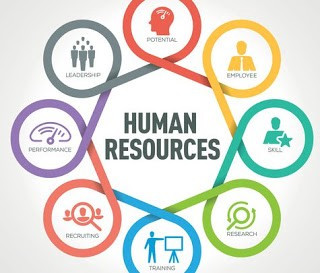- Lecturer: Ethilde Kuwa
NUST eLearning
Search results: 1366
- Lecturer: Gerald Cloete
- Lecturer: Oghenekevwe Shalom Akpokiniovo
- Lecturer: Charmaine Conradie
- Lecturer: Dr Tashnica Sylvester
- Lecturer: Shapopi Kamanja
- Lecturer: Dr Tashnica Sylvester
- Lecturer: Oghenekevwe Shalom Akpokiniovo
- Lecturer: Charmaine Conradie
- Lecturer: Dr Oiva Viety Kamati
- Lecturer: Dr Tashnica Sylvester
- Lecturer: Isaac Nhamu
- Lecturer: Erick Uukule
- Lecturer: WALIOMUZIBU WALIOMUZIBU MUKISA
- Lecturer: Wilmari Horn
- Lecturer: Brenda Kahuikee
- Lecturer: Ms Martha Namutuwa
- Lecturer: Abraham Shilomboleni

- Lecturer: Alida Siebert
Human Resource Management comprises a range of functions and functional activities that are carried out in order to, among other things, provide, utilise, remunerate, train, develop and maintain a motivated work force. It can, therefore, be described as a process embracing the dimensions of inception (getting individuals into the public sector); development (preparing employees to work effectively and efficiently); motivation (stimulating employees by caring for their needs) and maintenance (keeping employees in the public sector by providing suitable working conditions).
As you would imagine, the focus will mainly be on the African Public Service. You should thus strive to develop a genuine interest in the activities carried out by public sector institutions. This would provide you with an opportunity to evaluate human resource issues on a regular basis in this sector. You are, therefore, urged to apply practical examples in your approach to this subject.
- Lecturer: Brenda Kahuikee
- Lecturer: Ben Bainiso Namabanda
- Lecturer: Abraham Shilomboleni
- Lecturer: Brenda Kahuikee
- Lecturer: Ms Martha Namutuwa
- Lecturer: Abraham Shilomboleni
- Lecturer: Brenda Kahuikee
- Lecturer: Abraham Shilomboleni
- Lecturer: Odilo Sikopo
- Lecturer: Prof Nikodemus Angula
- Lecturer: Joseph Gandanhamo
- Lecturer: Brenda Kahuikee
- Lecturer: Ehrenfried Ndjoonduezu
- Lecturer: Abraham Shilomboleni
- Lecturer: Odilo Sikopo
- Lecturer: Brenda Kahuikee
- Lecturer: Fortunate Sithole
- Lecturer: Angela Apollus
- Lecturer: Dr Indepentia De Waldt
- Lecturer: Beatrice Mutonga
- Lecturer: Angela Apollus
- Lecturer: Mariette Hanekom
- Lecturer: Jona Kagola
- Lecturer: Dr Kennedy Kariseb
- Lecturer: Beatrice Mutonga
- Lecturer: Wilhelmina Shakela
- Lecturer: Geraldine Van Rooi

